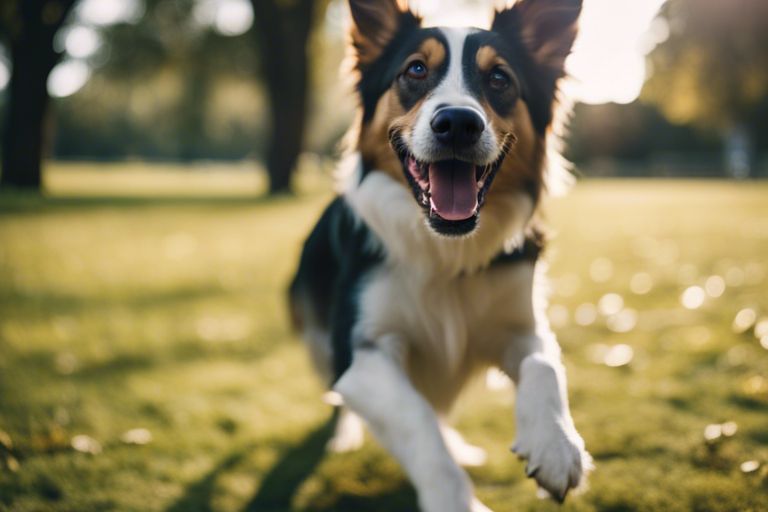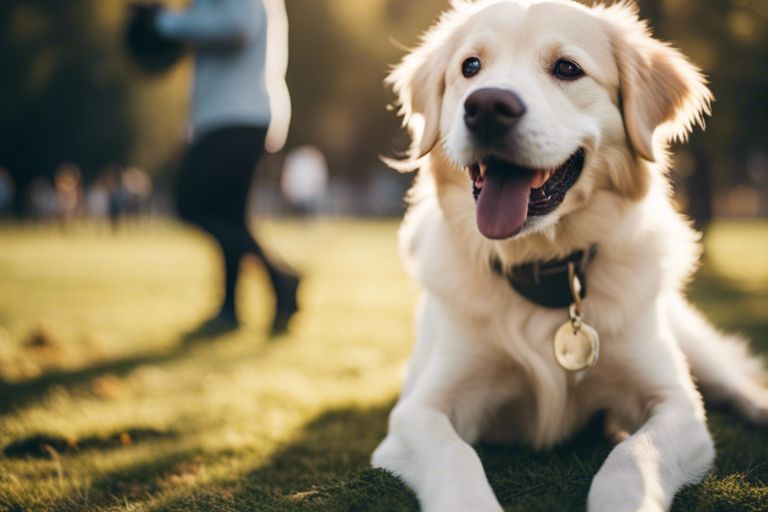Socialize your dog is crucial for their overall well-being and behavior. Proper socialization can prevent issues such as anxiety, aggression, and fear in dogs, ultimately leading to a happier and healthier life for your furry friend. In this guide, we will provide you with expert tips and advice on how to effectively socialize your dog to ensure they are well-adjusted and confident in various situations.
Key Takeaways:
- Start early: Socialization should begin when your dog is young, ideally between 3 and 14 weeks of age, to help them develop positive behaviors and prevent fear and aggression.
- Expose your dog to various experiences: Introduce your dog to a variety of people, animals, environments, sounds, and smells to help them feel comfortable and confident in different situations.
- Use positive reinforcement: Reward your dog with treats, praise, and affection when they exhibit good social behavior, to encourage them to continue these behaviors and build strong bonds with you and others.
Preparing for Socialization
Understanding Your Dog’s Personality
With any dog, it’s crucial to understand their unique personality traits before launching on a socialization program. Some dogs may be naturally outgoing and confident, while others may be more reserved or fearful. By observing your dog’s behavior in various situations, you can tailor their socialization experiences to suit their individual needs. This will ensure a positive and successful socialization process.
The Role of Age in Socialization
Understanding the role of age in socialization is necessary for effectively socializing your dog. Puppies are most receptive to new experiences between the ages of 3 to 14 weeks, known as the critical socialization period. However, socialization should continue throughout your dog’s life to maintain good behavior and prevent issues such as aggression or fearfulness. The key is to expose your dog to a variety of people, animals, environments, and situations in a controlled and positive manner at every stage of their development.
How-To Socialize Your Dog
Tips for Puppy Socialization
The early stages of a puppy’s life are crucial for socialization. Introduce your puppy to diverse environments, different people, and other animals to help them become well-rounded. Enroll them in puppy classes to learn basic obedience commands and interact with other puppies. Allow positive experiences with various stimuli, rewarding good behavior with treats and praise.
- Expose your puppy to different sounds, sights, and textures.
- Supervise interactions with other animals and children to ensure positive experiences.
- Praise and reward good behavior during socialization exercises.
This will help build their confidence and teach them how to navigate new situations calmly and positively. Consistent socialization in their formative weeks will lay a solid foundation for their future interactions with the world.
Guidelines for Socializing Adult Dogs
Little is known about the history and experiences of adult rescue dogs, making their socialization process unique. Start by assessing their behavior in controlled environments, gradually introducing them to new people, animals, and places. Patience is key, as adult dogs may take longer to adjust to new surroundings compared to puppies. Use positive reinforcement to reward desirable behavior and gradually increase exposure to various stimuli.
Adult dogs who have not been properly socialized may display fear or aggression towards new experiences. Consult a professional trainer to create a customized socialization plan tailored to your adult dog’s specific needs. With time, patience, and a structured approach, adult dogs can learn to trust and engage positively with their environment.

Factors Affecting Socialization
Unlike what some may believe, socializing your dog is not just about exposing them to new experiences. There are various factors that can impact how successful your dog’s socialization journey will be. These factors include the age of the dog, past experiences, breed tendencies, and the method of socialization used. This is why it’s crucial to take a thoughtful and tailored approach to socializing your furry friend.
Positive Reinforcement Techniques
Clearly, positive reinforcement techniques play a vital role in effectively socializing your dog. Using treats, praise, and rewards to reinforce good behavior during social interactions can help your dog feel more comfortable and confident in new environments. Consistency and patience are key when using positive reinforcement techniques to shape your dog’s social behavior.
Dealing with Socialization Challenges
Little setbacks or challenges during the socialization process are common and should not be a cause for alarm. Understanding your dog’s limits and comfort levels is vital in overcoming these challenges. Slowly introducing new experiences and environments, along with seeking guidance from a professional trainer if needed, can help address any socialization issues that may arise.
A positive and patient approach to socialization challenges will benefit both you and your dog in the long run. Remember that every dog is unique, and what works for one may not work for another. By observing your dog’s body language and reactions, you can tailor your socialization efforts to suit their individual needs.
Socialization Strategies
Safe Environments for Socializing Your Dog
You want to ensure that your dog is in a safe and controlled environment when introducing them to new experiences and interactions. Start in a quiet area free from distractions to help your dog focus and feel secure. Gradually expose them to different environments, always keeping a close eye on their body language and comfort level.
Introducing Your Dog to Other Animals and People
Animals and people play a crucial role in your dog’s socialization. When introducing them to other animals, start with calm and non-aggressive ones to avoid any negative experiences. Always supervise the interaction and be ready to intervene if necessary. Similarly, introduce your dog to a variety of people – men, women, children, and different ethnicities to build their confidence and adaptability.
Maintaining Socialization
Ongoing Socialization Activities
Many dog owners believe that socialization stops once a puppy reaches a certain age, but ongoing socialization throughout your dog’s life is crucial. Regularly exposing your dog to new environments, people, and other animals will help prevent regression in their social skills. Take your dog on walks in different areas, visit dog-friendly parks, and enroll them in dog training classes or group play sessions to keep them well-socialized.
Monitoring Behavior and Adjusting Strategies
The key to successful socialization is being able to read your dog’s body language and behavior cues. You must constantly monitor how your dog reacts to different social situations. If you notice signs of fear, aggression, or discomfort, it’s necessary to adjust your socialization strategies accordingly. You may need to take a step back and gradually reintroduce your dog to the situation in a more controlled manner.
You play a crucial role in ensuring your dog’s socialization is a positive experience. By closely observing their behavior and making necessary adjustments, you can help them build confidence and develop healthy social skills for a happy and well-balanced life.
Adjusting
Recall, every dog is unique, and their socialization needs may vary. Be flexible in your approach and willing to adapt your strategies to suit your dog’s individual temperament and comfort level. By consistently monitoring and adjusting your socialization methods, you can help your dog thrive in a variety of social settings.
Conclusion
The way you socialize your dog will greatly impact their overall well-being and quality of life. It is crucial to expose your dog to various people, animals, and environments from an early age to ensure they grow into a confident and well-adjusted companion. By using positive reinforcement, consistency, and patience, you can help your dog develop strong social skills that will lead to a happy and fulfilling life. Do not forget, socialization is an ongoing process that requires dedication and effort, but the rewards of a well-socialized dog are immeasurable.
FAQ
Q: Why is socializing my dog important?
A: Socializing your dog is crucial for their overall well-being as it helps them develop good behavior, reduce anxiety, and build confidence. It also enables them to interact positively with other dogs and people, which can prevent aggression and fear-based reactions.
Q: When should I start socializing my dog?
A: It is recommended to start socializing your dog as early as possible, ideally when they are puppies between 3 to 14 weeks old. This critical period is when dogs are most receptive to new experiences and can learn to feel comfortable in various situations and environments.
Q: How can I properly socialize my dog?
A: To properly socialize your dog, expose them to different environments, people, animals, sounds, and experiences in a positive and controlled manner. Gradually introduce them to new stimuli, use positive reinforcement techniques, and ensure the interactions are safe and enjoyable for your dog. Consistency, patience, and gentle guidance are key to successful socialization.

